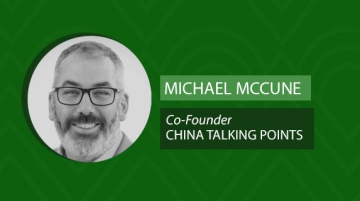
Chinese Foreign Minister Wang Yi kicked off his annual tour of Africa in Cairo this week where he met with senior Egyptian leaders to discuss the growing instability in North Africa, the Mideast, and the Persian Gulf.
Wang also found a receptive audience in Egypt for China’s controversial policies in its far western province of Xinjiang where hundreds of thousands, possibly even millions of Chinese, are being “re-educated” (the Chinese version of events) or forcibly interned (the Western assessment).
Beyond geopolitics, China also has a lot at stake economically in these regions as countries like Iraq and Saudi Arabia are among its largest suppliers of crude oil.
Camille Lons follows these issues from Bahrain where she is a Research Associate at the International Institute for Strategic Studies. She was also the Project Editor on the October 2019 paper “China’s Great Game in the Middle East” that was published by the European Council on Foreign Relations.
Camille joins Eric & Cobus this week to discuss whether China will among the key beneficiaries of the ongoing crisis between the United States and Iran.
Show Notes:
- European Council on Foreign Relations: China’s great game in the Middle East by Camille Lons (project editor), Jonathan Fulton, Degang Sun, Naser Al-Tamimi
- The Daily Beast: Trump’s Iran Clusterf**kery Just Handed the Middle East to China by David Rothkopf
- CNN.com: China doesn’t want war, but Trump’s strike against Iran could present an opportunity to Beijing by James Griffiths

Camille Lons is a Research Associate of the IISS, based in the Middle East office in Bahrain. She covers political and security developments in the Gulf region, with a specific focus on Gulf countries’ economic and political relations with Asian powers and the Horn of Africa. Before joining the IISS Camille worked for the European Council on Foreign Relations, where she coordinated the Middle East program and conducted research on relations between Europe and Gulf states. She also conducted field research for the NGOs Lebanon Support (Beirut) and Tamkeen Fields for Aid (Amman) on the spill-over effects of the Syrian crisis in neighboring countries.






